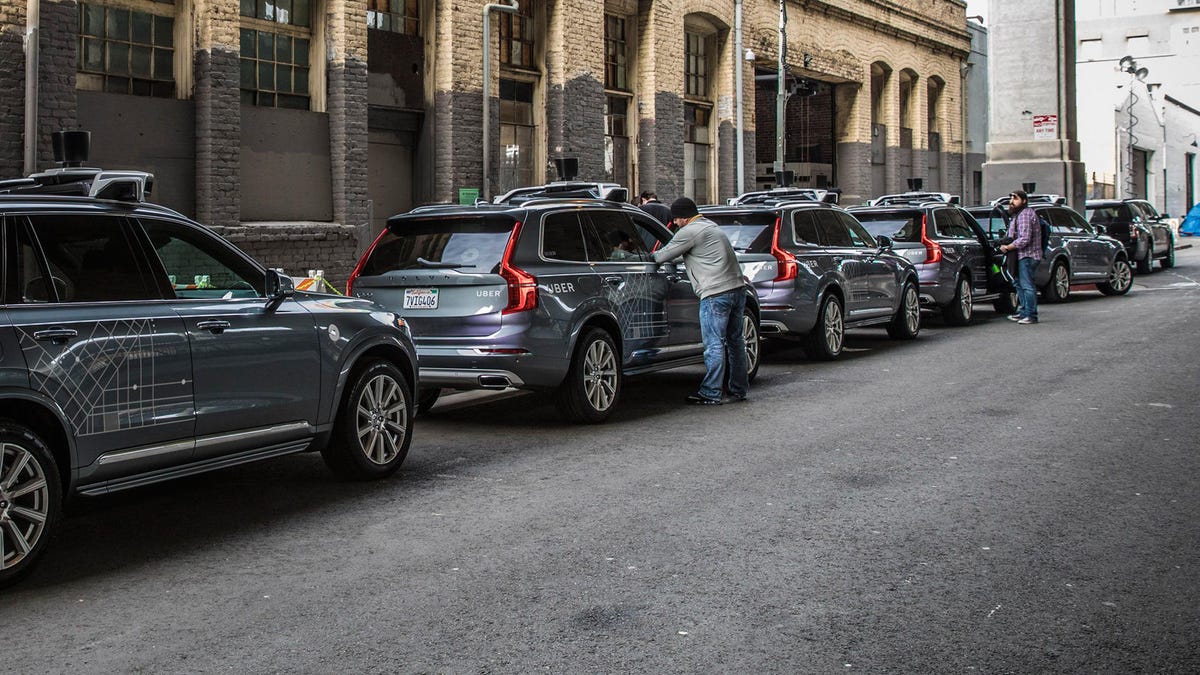Uber orders 24,000 Volvos for self-driving program
Volvo will deliver the vehicles between 2019 and 2021.

Back in 2016, Volvo and Uber partnered up to bring self-driving vehicles to the ride-hailing giant's fleet. Now, Uber is going all-in on that partnership with a big order.
Uber has agreed to purchase approximately 24,000 Volvo XC90 SUVs , the automaker announced Monday. The vehicles won't be self-driving directly from the factory -- rather, Uber will outfit the vehicles with its own hardware and software that will make the vehicles capable of operating without a driver.
You'd better get used to seeing these.
Humans have been part of Uber's strategy from the start, but the company has never been shy about its plans to create a fleet of driverless vehicles for ride hailing. At the absolute minimum, self-driving vehicles are far less complicated than humans, who demand things like gender-equal pay and not being classified as contractors.
This marks a big step in Uber's plans, which have been met with resistance from several angles. In addition to the aforementioned legal battles, Uber is currently embroiled in a lawsuit with Waymo, which alleges that Uber stole valuable trade secrets and used them to develop its own autonomous platform. Uber vehemently denies the allegations, going so far as to separate itself from the individual who allegedly stole those secrets.
Uber also had some trouble with its first batch of self-driving Volvo XC90s. After bringing the vehicles to San Francisco for testing, the California DMV claimed Uber was acting illegally and eventually rescinded the vehicles' registrations. Uber moved its operations to Arizona, but it did eventually return to San Francisco, albeit using the vehicles for mapping purposes only.
Speaking of Waymo, the Google spinoff has similar plans to Uber. Waymo already has an agreement in place with Fiat Chrysler to use the Pacifica minivan as a base for its self-driving platform. Waymo announced earlier this month that its Phoenix-area public pilot would no longer use safety drivers, which is still a requirement in other states.
The agreement isn't exclusive, which means Uber is free to order vehicles from other manufacturers. Volvo isn't joined to Uber's hip, either -- in fact, the automaker said it would use the same base vehicle supplied to Uber in its quest to develop its own fully autonomous car, which it expects to release in 2021.

